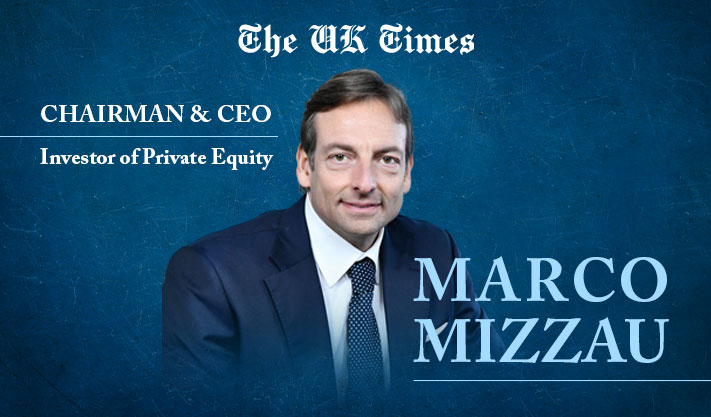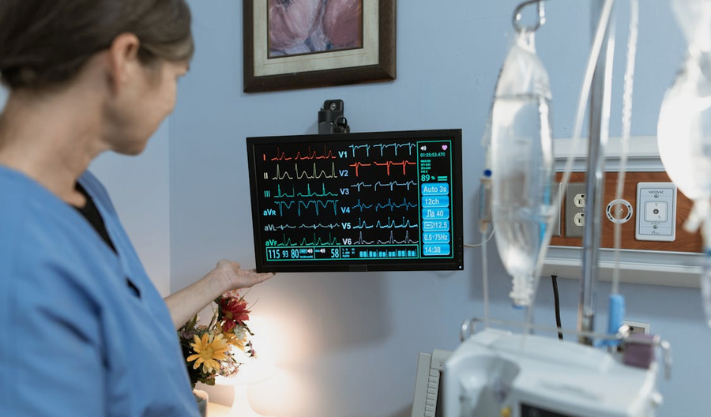Marco Mizzau Interview
Marco Mizzau is a Global CEO, Founder and Strategic Advisor with 26 years of leadership across finance, industrials, healthcare and technology. He is recognized for building high-performance platforms and transforming complex systems by operating at the intersection of strategy, capital and AI.
Marco began his career at Ferrovie dello Stato before taking senior leadership roles at KPMG, EY and Accenture, leading strategic, financial and digital transformation programs across Europe, Russia, Turkey and the Middle East.
He served as Chief Operating Officer of Campus Bio-Medico University Hospital (2012–2019), CEO of Inarcassa (€14B AUM) and CEO of Consip, Italy’s €27B national digital procurement and supply chain platform, where he delivered full digitalization ahead of national targets and enabled €4B in public savings.
Since 2025 he has acted as Strategic Advisor to global private equity funds, driving M&A-driven growth and AI-enabled transformation across healthcare, fintech, industrial and technology platforms.
He is also the Founder & Chairman of PrivateEquity.AI, a research hub exploring how AI is reshaping private markets, investment strategies and execution models.
Career Overview & Vision of Marco Mizzau
We started the interview by asking, “Dr. Mizzau, you’re recognized as a global CEO and strategic advisor with over 26 years of leadership in finance, technology, healthcare, and private equity–backed companies. You’ve executed cross-border M&A, built scalable platforms, and led operational turnarounds in highly regulated markets. Given this track record, how do you see digital healthcare and AI reshaping the industry over the next decade?”
Marco Mizzau replied, “Over the years, I’ve seen technology, capital, and disciplined governance completely reshape industries. Today, digital healthcare and AI are at a tipping point moving from niche pilots to global scale adoption. We’re not just talking about incremental change; we’re building AI-driven healthcare platforms that integrate early diagnostics, predictive analytics, workflow automation, and care continuity systems. In the next decade, healthcare will evolve from being a place you go, to a connected ecosystem that follows you everywhere. Artificial intelligence is not just digitizing existing processes it is creating a new operating system for healthcare. We are moving toward a world where prevention, diagnosis, treatment, and long-term monitoring are seamlessly integrated into a continuous, data-driven patient journey. For private equity investors, this is not simply a technological story; it is a strategic inflection point. The winners will be platforms that combine proprietary clinical data, AI-driven decision support, and global scalability into defensible, high-growth ecosystems. These platforms will not only improve patient outcomes and lower costs but also deliver recurring revenues, regulatory moats, and premium valuations. The convergence of innovation, capital, and execution in digital healthcare is becoming one of the most transformative opportunities of our time and those who act decisively now will shape the next generation of global healthcare leaders
Several top-tier global private equity and growth equity investors are already executing on this playbook, consolidating fragmented healthcare markets, integrating complementary AI technologies, and building globally defensible platforms. My focus is on supporting healthcare companies that are both profitable and transformative in patient outcomes, a value proposition that’s increasingly at the top of the agenda for leading PE investors.”
AI’s Strategic Value Creation
The UK Times: You’ve advised multiple healthcare technology companies on scaling strategies. From an investor’s perspective, where is AI creating the most value, and what should private equity funds look for in potential acquisitions?
Marco Mizzau replied, “AI is no longer an add-on; it’s the core driver of competitive advantage in healthcare. Its ability to turn massive, unstructured clinical data into real-time, evidence-based insights is unlocking both efficiency and quality gains. We’re seeing 20–40% improvements in diagnostic speed and accuracy, and double-digit operational efficiency gains in hospital and outpatient settings.
For private equity investors, the key due diligence filters are:
- Scalability — The solution’s ability to operate across multiple jurisdictions and regulatory frameworks.
- Defensibility — Proprietary datasets, explainable AI models, and established regulatory clearances.
- Synergy potential — How the asset complements other portfolio holdings to create cross-selling and operational leverage.
These moves show where the market is heading.”
Private Equity as a Catalyst for Platform Leadership
The UK Times: Private equity investors are accelerating healthcare transformation through M&A. How do you see the buy-and-build model shaping global AI-enabled healthcare platforms?
Marco Mizzau replied, “The buy-and-build model works exceptionally well in healthcare because the market is often fragmented, with highly specialized players that lack scale. An anchor acquisition with strong IP, proven clinical adoption, and solid EBITDA provides the foundation. Strategic bolt-ons then add complementary capabilities — for example, integrating an AI diagnostics company with a telehealth platform and a predictive analytics provider to deliver a full-stack solution.
Private equity adds value by:
- Deploying capital rapidly to seize consolidation opportunities.
- Harmonizing tech stacks for operational efficiency.
- Establishing governance frameworks that ensure regulatory compliance and investor-grade reporting.
This approach not only accelerates market penetration but also increases the platform’s valuation multiple by building a defensible, high-growth leader — something we’ve seen in recent multi-billion dollar exits in the sector.”
Scaling & Defensibility in a PE Context
The UK Times: You’ve scaled PE-backed companies internationally. What’s the blueprint for building a defensible, high-growth healthcare platform with private equity backing?
Marco Mizzau replied, “The blueprint rests on three pillars:
- Clinical relevance — Address a high-impact healthcare challenge with measurable outcome improvements.
- Regulatory leverage — Secure approvals in key markets early to accelerate international expansion.
- Data moat — Build proprietary datasets that make the platform indispensable and hard to replicate.
In my experience, platforms that integrate AI with exclusive clinical datasets and strong institutional partnerships — such as those with leading hospital systems — create the deepest competitive moat. Combine that with PE-backed speed in M&A execution, and you can achieve both market leadership and a premium exit valuation within 4–6 years.”
Marco Mizzau Future Outlook
Lastly we asked, “If we look ahead a decade, what will the most successful PE-backed healthcare companies look like?
“A decade from now, the winners will be global, AI-enabled platforms that integrate prevention, diagnosis, treatment, and post-care monitoring seamlessly. They’ll have scaled across multiple continents, navigated complex regulatory environments, and maintained defensibility through proprietary data and clinical partnerships.
Private equity will have played a decisive role — not just as financiers, but as architects of integrated healthcare ecosystems. The most valuable companies will be those that deliver measurable patient impact while sustaining strong EBITDA growth and achieving premium valuations in both strategic M&A and public markets.” Marco Mizzau concluded
Visit his website for more information
Official Website: https://www.marcomizzau.com
LinkedIn: https://www.linkedin.com/in/marcomizzau
Medium: https://medium.com/@marcomizzau
https://www.instagram.com/marcomizzau_official/
https://x.com/marcomizzau
Also Read:
Peter Hall Vision for Torvec LLC
Charlotte Cheetham on Gut Health
Layal Abou Ghanem, OD Leader and Co-Founder of STC























